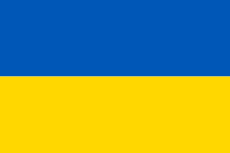FEBRUARY 24, 2023 – To Putin’s chagrin, Ukraine didn’t fall in a week or even a year. In a move personally humiliating to the Russian invader, on Monday the American president visited Kyiv—without breaking stride when an air-raid siren went off. If the brutish Boss of Russia has no regard for human life—be it Ukrainian or Russian—his American nemesis demonstrates empathy, courage and leadership, not only in support of Ukrainian sovereignty but in defense of democratic freedom. President Zelenskyy, meanwhile, is the European face of those attributes.
No one knows how the war will end. Ukraine has many military advantages over Russia, but Russia, with its tradition of fighting by the numbers and a population roughly three times that of Ukraine, can and will send endless waves of troops into the fight. A shortage of ammunition and equipment won’t slow the meat grinder: when faced with a rifle shortage in WW I, Russia’s generals staggered battle charges, with rifles distributed to soldiers in the first wave but not to the second wave. Those in the latter group were ordered to arm themselves with the rifles of dead and wounded soldiers of the first wave. Likewise, Putin has no compunction about sending wave after wave of Russian soldiers into the killing fields—to kill and be killed. Also, he can rely on such authoritarian allies as Iran and North Korea and possibly China, to supply weapons and ammunition.
Putin’s strategy is to play a simple game of tactical addition (more missiles, artillery rounds and troops to the front) and subtraction (fewer troops troops returning home unscathed) until he wins by attrition. Attrition means not only physical exhaustion on the part of Ukrainians but a fracturing of Western political, financial and military support. Potentially, Putin’s most effective allies are Republican radicals in Congress, aided by a mix of Russian troll factories, rightwing media and old fashioned American isolationism.
Should Putin prevail, the ultimate cost to democracy around the world will be incalculable. Current Western naysayers might argue that the cost of open-ended support of Ukraine is also inestimable. But if the U.S. and NATO waver over Ukraine, Russian and Chinese authoritarianism will be emboldened, as will the regimes of Iran and North Korea. We who say we prize democratic principles—and all the tangible and intangible benefits that ensue from them—will find ourselves and our allies with our backs to the wall.
However difficult it is for Americans to read history, study maps, follow the global economy and understand geopolitics, our future way of life is on the line in Ukraine no less than Ukraine’s very existence is. What ought to unite us Americans with Ukrainians is self-preservation—the same common interest that should unify us Americans with ourselves.
What’s now in the three-way balance is (a) the cost of arming Ukraine for victory now; (b) the higher cost of arming Ukraine over an indefinite period, not to win but to avoid losing; and (c) the bankruptcy of democracy, because if Ukraine falls, the world order, including terms of world trade, even sovereignty of many countries, will be dictated by authoritarian regimes. If we’re guided by self-preservation—freedom over oppression—we’ll opt for “(a).”
(Remember to subscribe to this blog and receive notifications of new posts by email.)
© 2023 by Eric Nilsson
